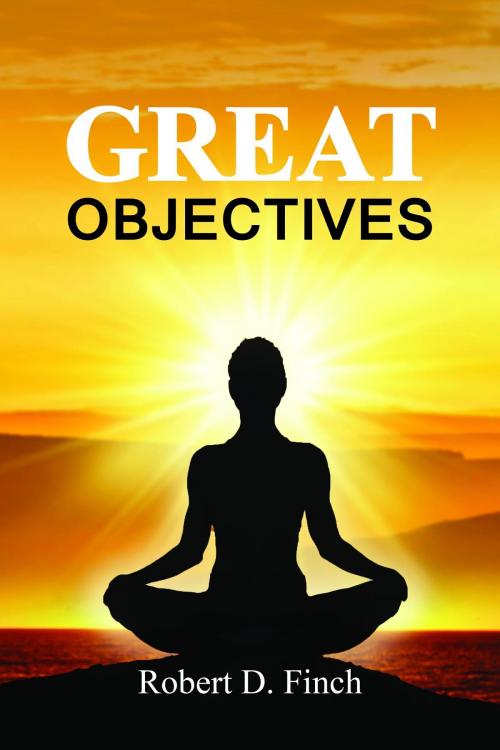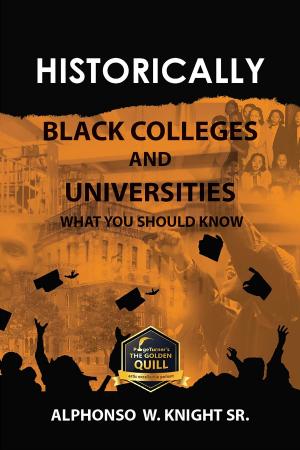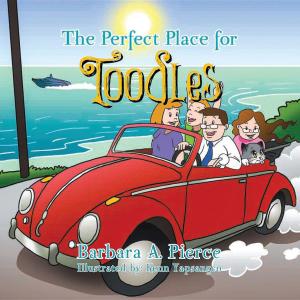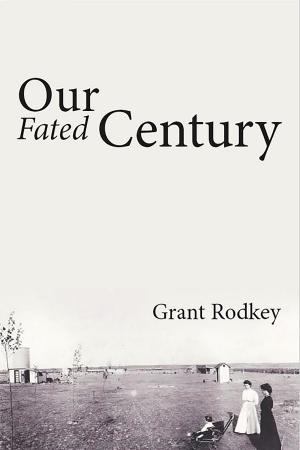Great Objectives
Nonfiction, Reference & Language, Education & Teaching, Educational Theory, Philosophy & Social Aspects, Teaching, Teaching Methods, Religion & Spirituality, New Age| Author: | Robert D. Finch | ISBN: | 9781948304177 |
| Publisher: | PageTurner, Press and Media | Publication: | December 22, 2017 |
| Imprint: | PageTurner, Press and Media | Language: | English |
| Author: | Robert D. Finch |
| ISBN: | 9781948304177 |
| Publisher: | PageTurner, Press and Media |
| Publication: | December 22, 2017 |
| Imprint: | PageTurner, Press and Media |
| Language: | English |
Robert Bob Finch was educated at Imperial College, University of London, where he studied Physics and obtained his Ph.D. in 1963. While at college, he helped found a Humanist club called the Huxley Society, named after Thomas Henry Huxley who was a Professor at Imperial College. Bob and his wife have two children, Matthew and Christine.
Upon completing a postdoctoral fellowship in the Physics Department of UCLA, Bob joined the faculty of Mechanical Engineering at the University of Houston in 1965, where he has been a Professor in Mechanical Engineering since 1972. He received the Biennial Award of the Acoustical Society of America in 1972 for research on liquid helium, and was also made a Fellow of that Society in the same year. He served as Chairman of the Mechanical Engineering Department at the University of Houston from 1976 to 1979.
He also served as Assistant Executive Director of the Governor's Energy Advisory Council, State of Texas, during the "energy crisis" of the early 1970's. He has some 40 technical publications in Acoustics. He is a Fellow of the Acoustical Society of America and was recipient of the Biennial Award of that Society in 1972. He retired from the University in 1998 and is now a Professor Emeritus. He is the author of the textbook "Introduction to Acoustics" published in 2005. He was President of the Humanists of Houston from 1992 to 1997, and has published some 20 papers on Humanism. He was elected Vice-Chairman of the Chapter Assembly of the American Humanist Association in 1999, and to the AHA Board in 2002. He is also on the Board of the Imperial College Foundation. He has also been President of the University of Houston Retirees Association.
In his book Utilitarianism, John Stuart Mill refers to the great objects of human life. We may assume that what Mill calls an object is the same as an objective in modern parlance. The examples of great objectives that Mill cites include power, fame, and money. One wonders how seriously Mill was actually endorsing such aims to be the overarching objectives of living or whether he was simply expressing his finding that many people actually do take such aims as these for life. The contention is that Mill was indeed recognizing that people do choose such goals in life. After all, happiness has been recognized as an objective of life at least since the time of Aristotle, and virtue has a similarly ancient pedigree. It is quite common for ordinary people to adopt such mottos as “Healthy, wealthy, and wise” as aims for life. But we know that having more than one such value can lead to conflicts. This had been a concern to Sidgwick as well as other nineteenth-century moralists. A resolution to the problem was found by the time of the twentieth century, when it was realized that we should not try to achieve definite objectives, but instead look to some other procedure, such as a variety of evolution, to shape our objectives. In that case, we make plans and evaluate them, as we proceed. We should use our values, as Dewey recommended, for guideposts. The book discusses the methods of arriving at such plans and weighs some of the ethical and moral problems an individual or a society might face at the present time.
Robert Bob Finch was educated at Imperial College, University of London, where he studied Physics and obtained his Ph.D. in 1963. While at college, he helped found a Humanist club called the Huxley Society, named after Thomas Henry Huxley who was a Professor at Imperial College. Bob and his wife have two children, Matthew and Christine.
Upon completing a postdoctoral fellowship in the Physics Department of UCLA, Bob joined the faculty of Mechanical Engineering at the University of Houston in 1965, where he has been a Professor in Mechanical Engineering since 1972. He received the Biennial Award of the Acoustical Society of America in 1972 for research on liquid helium, and was also made a Fellow of that Society in the same year. He served as Chairman of the Mechanical Engineering Department at the University of Houston from 1976 to 1979.
He also served as Assistant Executive Director of the Governor's Energy Advisory Council, State of Texas, during the "energy crisis" of the early 1970's. He has some 40 technical publications in Acoustics. He is a Fellow of the Acoustical Society of America and was recipient of the Biennial Award of that Society in 1972. He retired from the University in 1998 and is now a Professor Emeritus. He is the author of the textbook "Introduction to Acoustics" published in 2005. He was President of the Humanists of Houston from 1992 to 1997, and has published some 20 papers on Humanism. He was elected Vice-Chairman of the Chapter Assembly of the American Humanist Association in 1999, and to the AHA Board in 2002. He is also on the Board of the Imperial College Foundation. He has also been President of the University of Houston Retirees Association.
In his book Utilitarianism, John Stuart Mill refers to the great objects of human life. We may assume that what Mill calls an object is the same as an objective in modern parlance. The examples of great objectives that Mill cites include power, fame, and money. One wonders how seriously Mill was actually endorsing such aims to be the overarching objectives of living or whether he was simply expressing his finding that many people actually do take such aims as these for life. The contention is that Mill was indeed recognizing that people do choose such goals in life. After all, happiness has been recognized as an objective of life at least since the time of Aristotle, and virtue has a similarly ancient pedigree. It is quite common for ordinary people to adopt such mottos as “Healthy, wealthy, and wise” as aims for life. But we know that having more than one such value can lead to conflicts. This had been a concern to Sidgwick as well as other nineteenth-century moralists. A resolution to the problem was found by the time of the twentieth century, when it was realized that we should not try to achieve definite objectives, but instead look to some other procedure, such as a variety of evolution, to shape our objectives. In that case, we make plans and evaluate them, as we proceed. We should use our values, as Dewey recommended, for guideposts. The book discusses the methods of arriving at such plans and weighs some of the ethical and moral problems an individual or a society might face at the present time.















